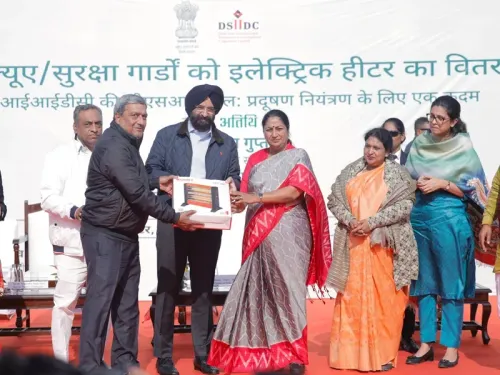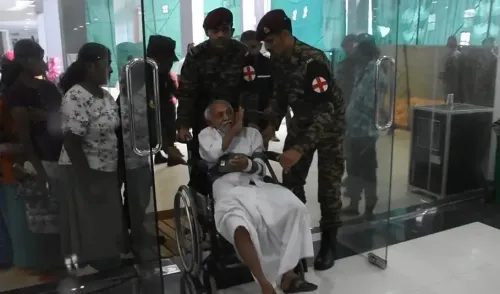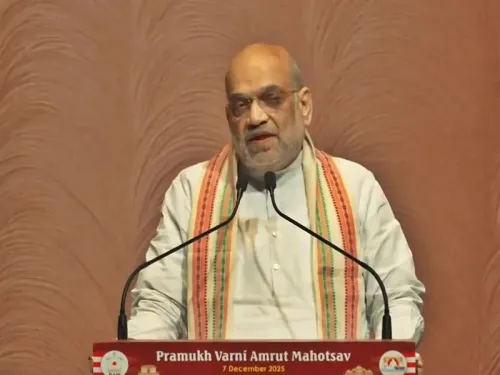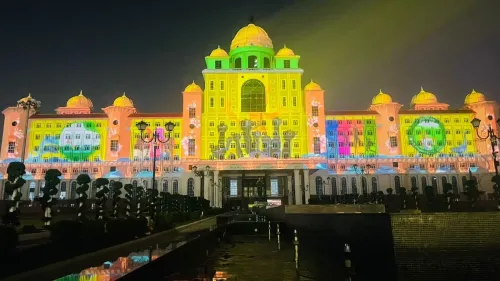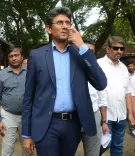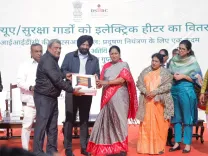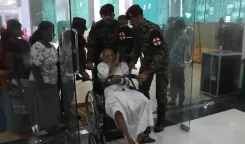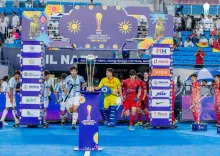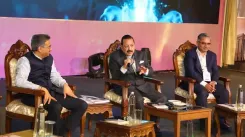Are Key Talks on Ladakh Statehood Happening at Kartavya Bhawan?
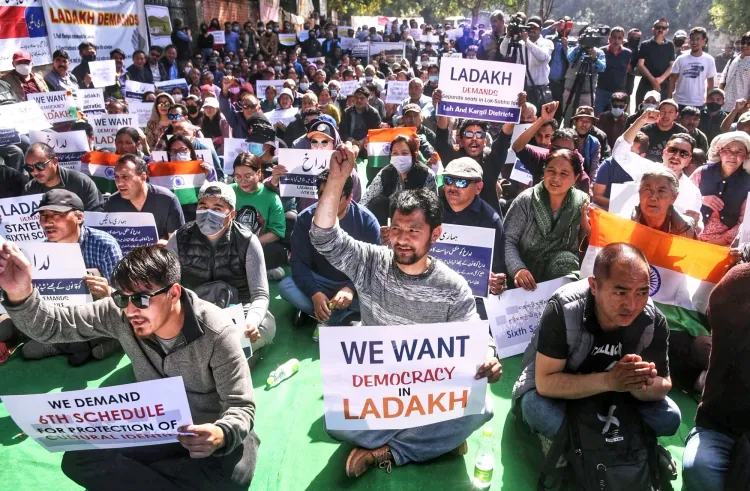
Synopsis
Key Takeaways
- Meeting between LAB and KDA with Union Home Ministry officials.
- Focus on statehood and Sixth Schedule for Ladakh.
- Discussion on compensation for victims of recent violence.
- Judicial probe ordered by the Centre into September 24 incidents.
- First formal talks since the unrest in Leh.
New Delhi, Oct 22 (NationPress) A significant meeting is currently taking place in Delhi, where representatives from the Leh Apex Body (LAB) and the Kargil Democratic Alliance (KDA) are engaging with senior officials from the Union Home Ministry. This gathering aims to address vital topics regarding Ladakh, such as the push for statehood, inclusion under the Sixth Schedule, and the release of climate activist Sonam Wangchuk along with other individuals currently detained.
The meeting, hosted at Kartavya Bhawan 3, signifies the first official dialogue between the leadership of Ladakh and the Ministry of Home Affairs (MHA) following the recent unrest in Leh, which resulted in four civilian fatalities and nearly 100 injuries.
Notable attendees from the LAB include Thupstan Chhewang, Chhering Dorjay, and Ashraf, while the KDA is represented by Asghar Ali Karbalai, Qamar Ali Akhun, and Sajjad Kargili. Additionally, Ladakh MP Haji Hanifa Jan is present as a public representative for both groups.
Sources indicate that discussions will also focus on compensation for the families of victims affected during the violent clashes.
This meeting follows the Centre's directive for a judicial investigation, led by a former Supreme Court judge, concerning the violence that erupted on September 24. The Ladakh bodies agreed to continue talks after this announcement.
Previously, on October 6, the LAB and KDA had refused to meet with central officials due to the government's inaction on their demands.
The MHA's eight-member subcommittee includes LAB chairman Thupstan Chhewang, Chering Dorjay Lakrook, Ashraf Barch, and lawyer Haji Mustafa from Leh, while the KDA’s representatives include Asgar Ali Karbalai, Sajjad Kargili, Qamar Ali Akhoon, and Kargil MP Haji Hanifa.
The unrest on September 24 coincided with the 15th day of Sonam Wangchuk's hunger strike, which demanded statehood and Sixth Schedule status for Ladakh. Protests escalated into confrontations with law enforcement, resulting in damage to public properties, including the arson of a BJP office and a police vehicle.
The Centre subsequently accused Wangchuk of inciting the violence, applying the National Security Act (NSA) against him, and transferring him to Jodhpur jail.


